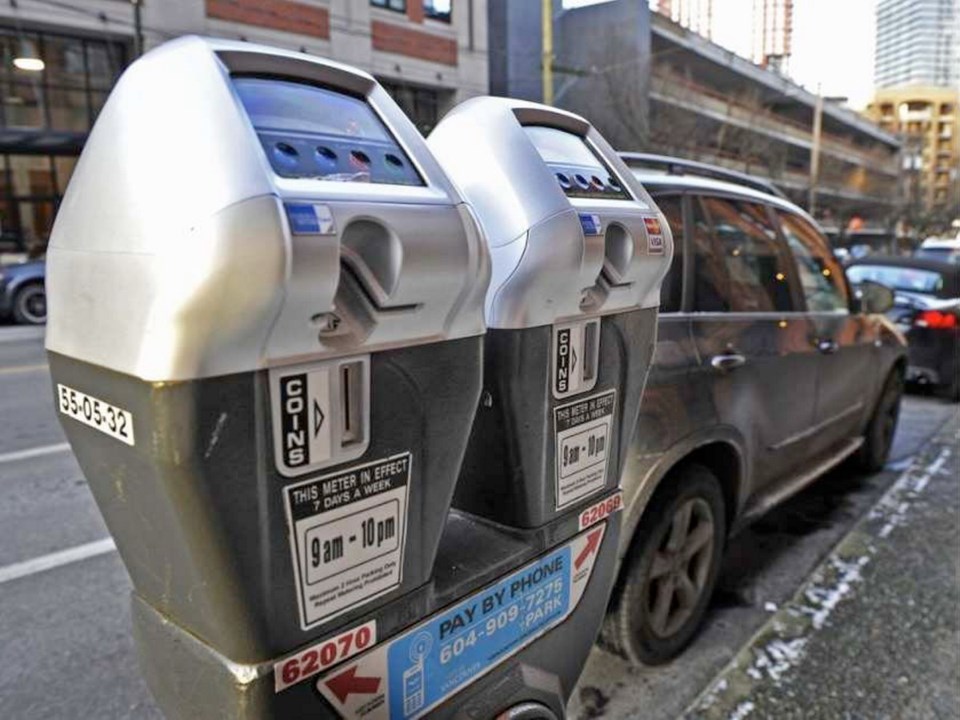City of Vancouver officials won’t say how much cash they could rake in from changes to parking meter pricing that will immediately increase curbside rates around the city.
More accurately, they say they just don’t know.
City councillors on Wednesday green-lit the city’s new “data-driven” parking program. It’s a complicated system designed to change parking practices and one that will see prices increase in the short term, then fluctuate annually based on usage.
Because there will be so many changes in either direction, staff say they can’t estimate what impact the program will have on annual revenues. The only hint on the ultimate outcome appears in a single sentence in a staff report to council that reads: “Overall revenues are expected to increase.”
Jerry Dobrovolny, the city’s general manager of engineering, said the first sense of the plan’s financial impact won’t come until the first quarter of 2017.
“The whole point of (the program) is to make sure the space is used as effectively as possible,” he said. “All fully parked from 9 to 5 doesn’t help anybody. Customers can’t park. Less than 60 per cent? Something’s not right there because it’s not being used.”
Under the new system, staff will begin by rounding hourly metered parking rates to whole dollars. That means $1.50 and $2.50 meters would go up to $2 and $3 meters. In no cases will the rounding exercise result in a drop in metered pricing.
Then, starting early next year and on an annual basis thereafter, curbside parking prices on heavily used blocks will increase in one dollar increments until hourly rates are high enough that one or two spots regularly sit empty and available. Staff have set an 85 per cent occupancy target citywide and say they may set different daytime and evening rates on some blocks to hit that target.
Meanwhile, metered blocks that show less than 60 per cent occupancy will see their prices drop by one dollar increments annually until they approach the city’s sweet spot.
The city’s plan had broad political support. George Affleck, a Non-Partisan Association councillor, said the program would help ensure traffic flows and drivers can reach their destinations. “To be able to make sure that there’s always a couple of spots free on the block is a good idea for business.”
Raymond Louie, a Vision Vancouver councillor, said lowering parking rates on some of the emptier blocks around town could “entice people to come and shop in those business districts as well.”
For an idea as to which blocks are most likely to see rate hikes, it would be reasonable to look first to those that are most heavily used. But there again, staff are unable to say.
Because the city’s meter coin collectors fill their carts over broad areas, they can’t break down the coin revenue by block.
Meanwhile, data from Vancouver’s PayByPhone system is also not gathered by block, according to the city.



